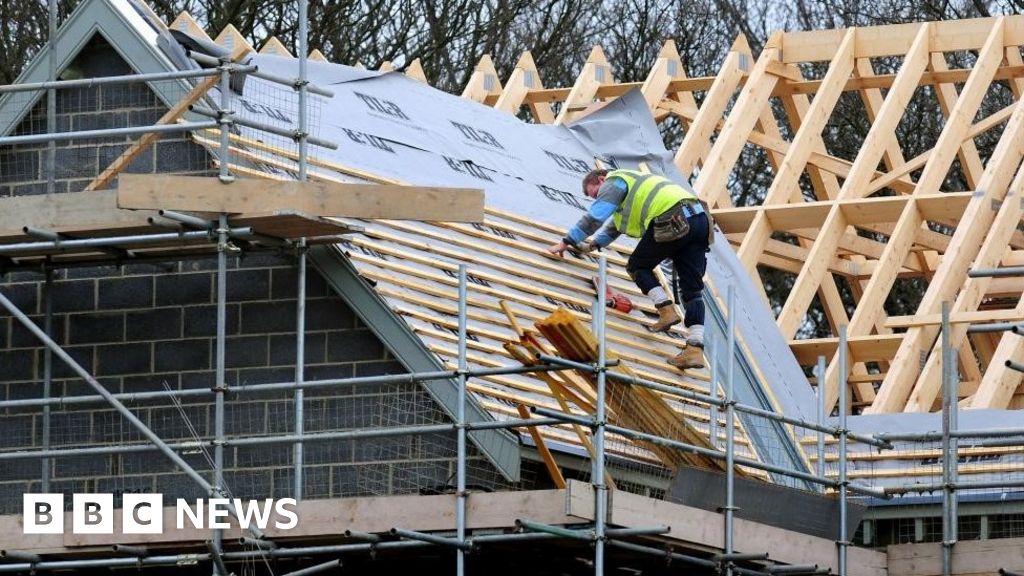Visa Rules Eased For Building And Fishing Industry

Visa rules are being eased for overseas builders, carpenters and people working in the fishing industry, the Home Office has confirmed.
Roofers and plasterers have also been added to the Shortage Occupation List, which temporarily eases visa restrictions in areas where employers are struggling to fill vacancies.
The Migration Advisory Committee (MAC) advised adding builders to the list.
No 10 denied the move contradicted government attempts to cut immigration.
The Conservative manifesto at the 2019 general election committed to getting immigration numbers down, without setting a specific target.
The prime minister's official spokesman said: "We've always acknowledged that in the short term we will need to flex and use our Brexit freedoms to enable us to fill short-term occupation numbers.
"We do want to ensure we have a specially trained domestic workforce," he added.
Advisors on MAC recommended five jobs for inclusion on the list:
Conservative MP Marco Longhi described the government announcement as "nuts," adding: "This country's addiction to immigration as a fix-all has to stop".
"We need to reform universities and train our own people through apprenticeships and other means and produce people ready for work," he added.
The Home Office also added jobs in the fishing trade to the list, alongside connected "elementary agriculture occupations".
The government is easing restrictions on the fishing industry as part of a wider reforms on the fishing industry - which includes a £100m UK Seafood Fund.
People on the shortage occupation list can apply for a skilled worker visa to work in the UK.
Those working in a shortage occupation pay lower visa fees and can be paid 80% of the job's usual rate and still qualify for a visa.
Applicants will still need a sponsored job offer from an employer and to meet English Language requirements.
The shortage list is reviewed every six months, with another review is expected by the autumn.
Image source, Getty Images
Prime Minister Rishi Sunak has previously complained migration into the UK is "too high", after net migration reached record levels last year.
According to the Office for National Statistics (ONS), immigration saw the country's overall population increase by 606,000 in 2022.
In a speech in May, Home Secretary Suella Braverman called for UK businesses to train up British nationals in labour shortage areas in a bid to reduce immigration.
MAC's construction and hospitality shortage review, published in March on the same day as the Budget, found vacancies rose sharply in both hospitality and construction, relative to pre-pandemic levels.
Advisors on MAC did not recommend any hospitality occupations be included, although it said Brexit and the pandemic had "significant effects" in both sectors.
Vacancies are 65% higher in construction compared to pre-pandemic levels, the report found. This compares to an increase of 42% in the overall economy.
Adding construction workers to the shortage list would not make a major difference to overall migration figures, MAC found.
The committee said its review was based on whether an occupation made up more than 0.5% of the sector workforce and earned below the current general threshold for migrants which stands at £26,200.
It said it also considered the "strategic importance of construction for the UK economy" and how its workforce was likely to change in the next decade, with "demand likely to increase markedly".
Suzannah Nichol, Build UK chief executive, said she welcomed the news, adding: "It is vital that construction is able to fill vacancies and quickly address shortages around particular roles."
On 3 July, a group of Tory MPs suggested policies it wanted to see to drastically cut migration, warning the failure to do so "risks eroding public trust".
They proposed only granting visas to skilled workers earning more than £38,000 a year.
Currently, in most cases foreign nationals have to earn at least £26,200 to qualify for a skilled worker visa, although this can drop to £20,960 if they are taking up a job on a shortage list.
Have you been affected by the issues raised in this story? You can share your experiences by emailing haveyoursay@bbc.co.uk.
Please include a contact number if you are willing to speak to a BBC journalist. You can also get in touch in the following ways:
If you are reading this page and can't see the form you will need to visit the mobile version of the BBC website to submit your question or comment or you can email us at HaveYourSay@bbc.co.uk. Please include your name, age and location with any submission.
From Chip War To Cloud War: The Next Frontier In Global Tech Competition
The global chip war, characterized by intense competition among nations and corporations for supremacy in semiconductor ... Read more
The High Stakes Of Tech Regulation: Security Risks And Market Dynamics
The influence of tech giants in the global economy continues to grow, raising crucial questions about how to balance sec... Read more
The Tyranny Of Instagram Interiors: Why It's Time To Break Free From Algorithm-Driven Aesthetics
Instagram has become a dominant force in shaping interior design trends, offering a seemingly endless stream of inspirat... Read more
The Data Crunch In AI: Strategies For Sustainability
Exploring solutions to the imminent exhaustion of internet data for AI training.As the artificial intelligence (AI) indu... Read more
Google Abandons Four-Year Effort To Remove Cookies From Chrome Browser
After four years of dedicated effort, Google has decided to abandon its plan to remove third-party cookies from its Chro... Read more
LinkedIn Embraces AI And Gamification To Drive User Engagement And Revenue
In an effort to tackle slowing revenue growth and enhance user engagement, LinkedIn is turning to artificial intelligenc... Read more

